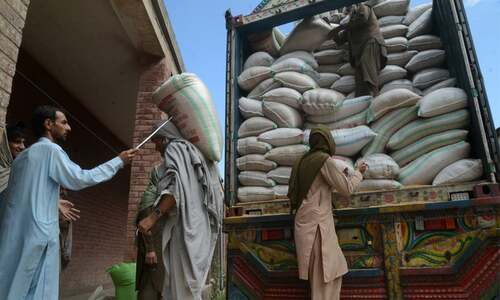ISLAMABAD: Pakistan cannot fight climate change without first increasing its forest cover, the Ministry of Climate Change (MCC) secretary, Arif Ahmed Khan, said on Friday.
Heading an inter-ministerial and inter-provincial meeting, Mr Khan said: “A target of planting 159 million trees across the country has been set for the coming three month spring season which will kick off in February.”
This target was approved after consultations with provincial forest departments and other federal ministries and departments, the Capital Development Authority (CDA), National Highway Authority, Pakistan Ordinance Factory and Heavy Industry Taxila.
Explaining the tree plantation program in the spring, forest inspector general at MCC Pakistan (IGF-Pakistan) Syed Mahmood Nasir told the meeting that Khyber Pakhtunkhwa was to plant the most trees at 123 million, Punjab was to plant 18.1 million trees, Sindh 7.1 and Balochistan will be planting 1.5 million trees. Azad Jammu and Kashmir is set to plant 1.3 million trees, Gilgit-Baltistan 1.1 million and four million trees will be planted in Fata.
According to Mr Nasir, CDA will be planting 0.3 million trees, the National Highway Authority 0.1 million, the Ministry of Defence 700,000, Heavy Industry Taxila 5,000, Pakistan Ordinance Factory 15, 000, Pakistan Tobacco Company 1.5 million, and IUCN will be planting 250,000 trees.
The meeting reviewed the plantation targets set for the last monsoon season by the provincial forest departments and other provincial and federal departments.
Syed Mehmood Nasir told the meeting that a target was set of planting 40.2 million trees across the country and that nearly 81pc of these, which is 32.5 million, have been planted. Of these, he said, 72pc had survived.
Secretary Khan said favourable weather in spring will increase the odds of the tress surviving.
“The three months of spring will bring with it trillions of litres of water for seedlings to grow faster and will help them get a better grip on the soil,” he explained.
The senior official said Pakistan cannot cope with the changing climate and its consequences, including flood and torrential rains, which had become more frequent.
“Forests hold back floodwater and reduce the intensity of floods, lowering the death toll and the damage to infrastructure,” he said.
The need for framing land use policies and their implementation at a provincial level was discussed at the meeting, which agreed this was important for discouraging the conversion of forests and agricultural lands for other uses such as constructing housing societies. Assistant Inspector General of Forests Aurangzeb Ashraf Awan said that legislation in this regard was important to save the existing forests.
“Failing to do so will aggravate the impact of climate change induced disasters,” he warned.
Published in Dawn, January 30th, 2016










































